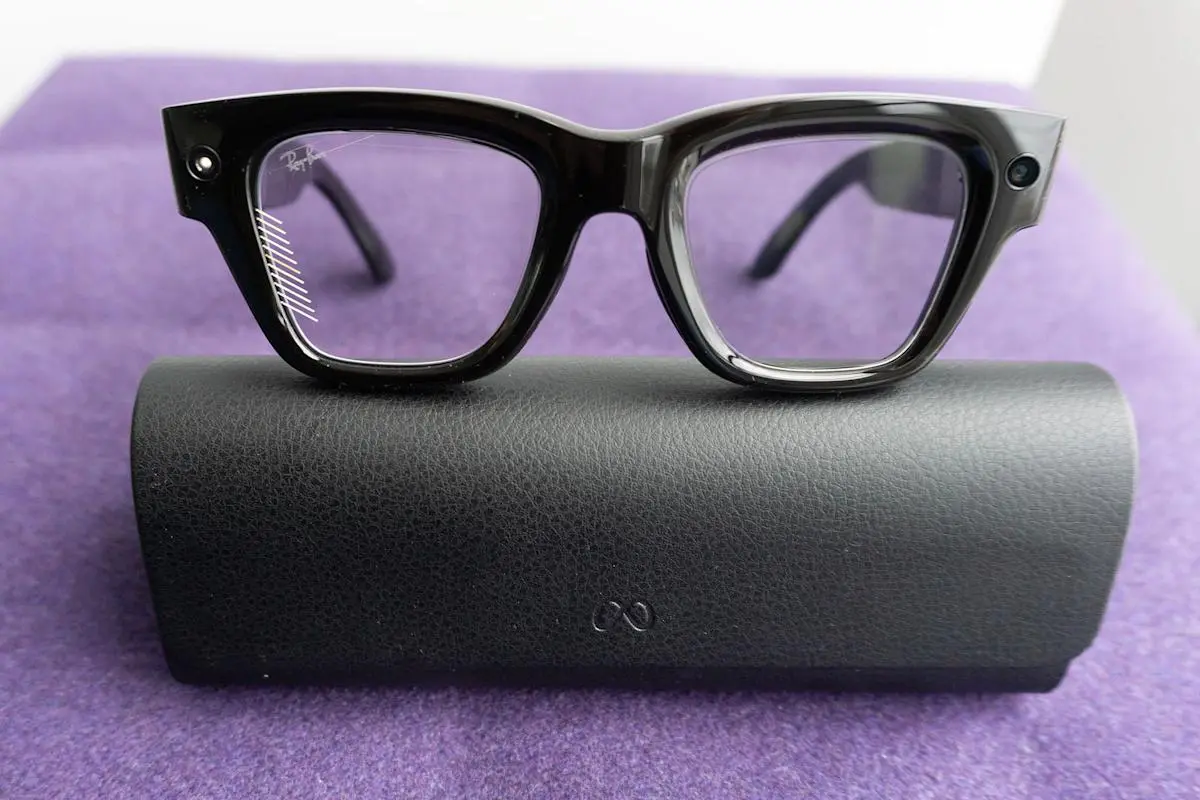AI-Powered STAR System Helps Couple Conceive After 18 Years of Infertility
2 Sources
2 Sources
[1]
AI helps find hidden sperm, leads to pregnancy after 18 years
Analyzing an embryo on a computer screen during an IVF (representiational image) A couple is expecting their first child after 18 years of failed fertility treatments, thanks to an AI-powered system that detected three hidden sperm cells in a man previously diagnosed with azoospermia. Known as STAR, short for Sperm Tracking and Recovery, the method was developed by Dr. Zev Williams and his team at the Columbia University Fertility Center. It uses high-powered imaging and artificial intelligence, originally designed to spot distant stars, to find rare sperm in semen samples once deemed hopeless.
[2]
AI helps couple get pregnant after 18 years of trying -- by finding...
Could high-tech goggles be the key to spotting secret swimmers? A couple is expecting their first child after nearly 20 years of trying, thanks to artificial intelligence that found "hidden" sperm in a man who was once thought to be shooting blanks. The futuristic treatment, currently only available in New York, could offer fresh hope to thousands of men who've long been told they'd never father a biological child. Most healthy semen is teeming with millions of sperm -- but up to 15% of infertile men have azoospermia, where there's virtually nothing to be found. "A semen sample can appear totally normal, but when you look under the microscope, you discover just a sea of cellular debris, with no sperm visible," Dr. Zev Williams, director of the Columbia University Fertility Center, said in a press release. Until now, men with azoospermia had few ways to overcome their missing swimmers. "The options have typically been either to use donor sperm or to try undergoing a painful surgery where a portion of the testes is actually removed and they look in the testes to try to find sperm," Williams told Today.com. Frustrated by the lack of effective solutions, Williams and his team turned their gaze to the galaxies. Borrowing AI technology used by astrophysicists to detect faraway stars and planets, the researchers spent five years developing the STAR system -- short for Sperm Tracking and Recovery -- to search for life of a different kind. And it works: When tested on a sample that embryologists had spent two days combing through with no success, STAR found 44 sperm in just one hour. "We're using the same technologies that are used to search for life in the universe to help create new life right here on earth," Williams said. In March 2025, a woman using the pseudonym Rosie became the first to get pregnant using the STAR method -- after nearly 19 years of trying to conceive with her husband, who has azoospermia. "There really was nothing else out there," Rosie, 38, said in an interview with Time magazine. "Especially because I am running quite a few years ahead of where we should be [for fertility]. I'm not that old, but in fertility years -- egg-wise -- I was reaching my end." For her husband, the process was surprisingly simple; all he had to do was provide a sperm sample. Researchers then scanned the sample with high-powered imaging, capturing more than 8 million images in under an hour. Using AI, they were able to detect three viable sperm cells. Once spotted, the tiny swimmers were swiftly extracted by a robot, avoiding damage from traditional methods like centrifugation, which spins the sample and can ruin the cells. "Imagine searching for a single needle hidden among a thousand haystacks scattered across ten football fields -- and finding it in under two hours," Williams told The Bump. "That's the level of precision and speed delivered by the STAR system." After extraction, the sperm can be used right away for in vitro fertilization (IVF) or frozen for future attempts. In Rosie's case, doctors had her eggs successfully fertilized within two hours of collecting her husband's sample. A few days later, the embryos were transferred to her uterus. Now five months pregnant, Rosie says it still feels surreal. "I still wake up in the morning and can't believe if this is true or not," she told Time. The baby is due in December. The STAR system is currently exclusive to Columbia University Fertility Center, where Williams said several other patients are already in the "banking stage." He told CNN the full process to find, isolate and freeze sperm costs just under $3,000. The average cost of IVF in the US ranges from $12,400 to $15,000 but can exceed $30,000 when including medications and genetic testing, according to GoodRx. While the new tech offers hope, some experts are skeptical. "At face value, this looks promising, but as with any new technology in medicine, especially in reproductive care, we need to follow the data and study it further," said Robert Brannigan, president-elect of the American Society for Reproductive Medicine, in an interview with the Washington Post. The development of the STAR system comes amid a global rise in male infertility. One study found that sperm counts in Western men plunged 52.4% between 1973 and 2011. Scientists are still working to pinpoint the cause, but suspect environmental exposures and lifestyle factors like obesity, poor diet and physical inactivity are playing a role. As infertility climbs, more couples are turning to assisted reproduction like IVF and the STAR system for a shot at parenthood. "With our method, many men who were told they had no chance at a biological child now have that chance," Williams said.
Share
Share
Copy Link
A groundbreaking AI technology called STAR (Sperm Tracking and Recovery) has helped a couple conceive after 18 years of failed fertility treatments by detecting hidden sperm cells in a man previously diagnosed with azoospermia.
Breakthrough in Fertility Treatment: AI Finds Hidden Sperm
In a remarkable advancement for reproductive medicine, an artificial intelligence-powered system has helped a couple conceive after 18 years of unsuccessful fertility treatments. The system, known as STAR (Sperm Tracking and Recovery), detected three hidden sperm cells in a man previously diagnosed with azoospermia, a condition where no sperm are visible in semen samples
1
2
.The STAR System: From Stargazing to Sperm Hunting
Developed by Dr. Zev Williams and his team at the Columbia University Fertility Center, STAR utilizes high-powered imaging and AI technology originally designed to spot distant stars and planets. The system spent five years in development, adapting astrophysics techniques to search for rare sperm cells in semen samples once considered hopeless
1
2
.Dr. Williams explained the challenge: "A semen sample can appear totally normal, but when you look under the microscope, you discover just a sea of cellular debris, with no sperm visible"
2
. STAR's effectiveness was demonstrated when it found 44 sperm in just one hour in a sample that embryologists had unsuccessfully examined for two days2
.
Source: Interesting Engineering
A New Hope for Azoospermia Patients
Azoospermia affects up to 15% of infertile men, leaving them with limited options for biological fatherhood. Traditional methods involved using donor sperm or undergoing painful testicular surgery to search for sperm
2
. STAR offers a non-invasive alternative, providing hope to thousands of men previously told they couldn't father biological children.
Source: New York Post
The First STAR-Assisted Pregnancy
In March 2025, a woman using the pseudonym Rosie became the first to conceive using the STAR method. After nearly 19 years of trying with her husband, who has azoospermia, Rosie is now five months pregnant
2
. The process involved scanning her husband's sample with high-powered imaging, capturing over 8 million images in under an hour. AI analysis detected three viable sperm cells, which were then extracted by a robot to avoid damage from traditional methods2
.The Process and Its Potential
The STAR system's precision and speed are remarkable. Dr. Williams compared it to "searching for a single needle hidden among a thousand haystacks scattered across ten football fields -- and finding it in under two hours"
2
. Once extracted, the sperm can be used immediately for in vitro fertilization (IVF) or frozen for future attempts.Related Stories
Cost and Availability
Currently exclusive to Columbia University Fertility Center, the STAR system's full process costs just under $3,000 for finding, isolating, and freezing sperm. This is significantly less than the average cost of IVF in the US, which can range from $12,400 to over $30,000 when including medications and genetic testing
2
.Expert Opinions and Future Prospects
While the new technology offers hope, some experts remain cautious. Robert Brannigan, president-elect of the American Society for Reproductive Medicine, stated, "At face value, this looks promising, but as with any new technology in medicine, especially in reproductive care, we need to follow the data and study it further"
2
.The development of STAR comes amid a global rise in male infertility, with one study showing a 52.4% decrease in sperm counts among Western men between 1973 and 2011
2
. As infertility rates climb, innovative solutions like STAR may become increasingly crucial in helping couples achieve their dreams of parenthood.References
Summarized by
Navi
[1]
Related Stories
Recent Highlights
1
OpenAI secures $110 billion funding round from Amazon, Nvidia, and SoftBank at $730B valuation
Business and Economy

2
Trump orders federal agencies to ban Anthropic after Pentagon dispute over AI surveillance
Policy and Regulation

3
Google releases Nano Banana 2 AI image model with Pro quality at Flash speed
Technology








